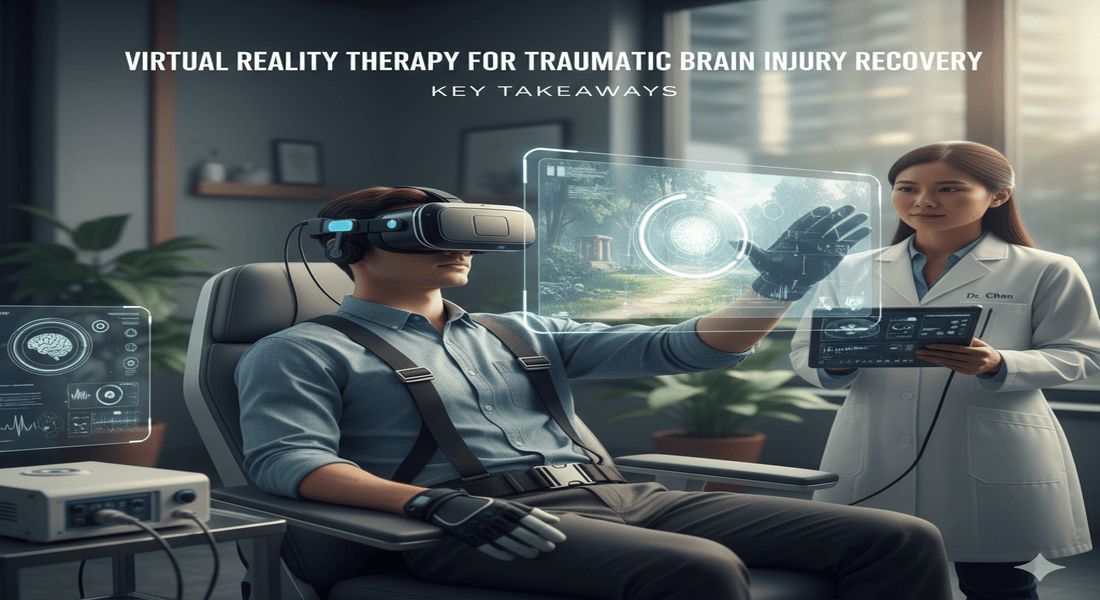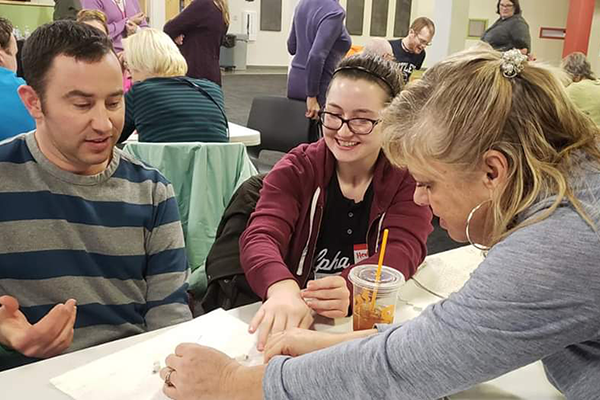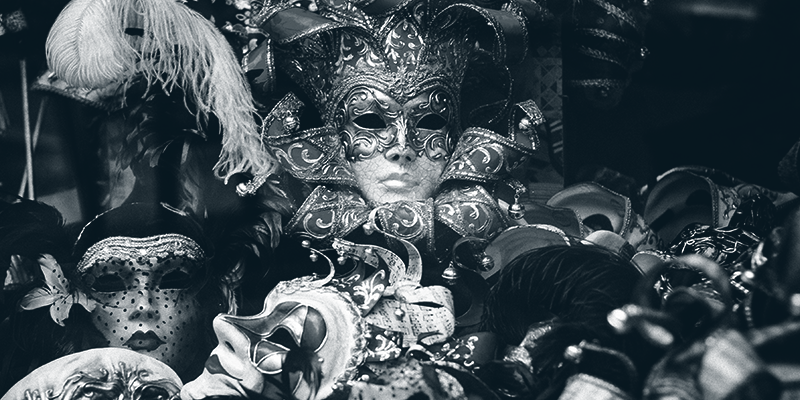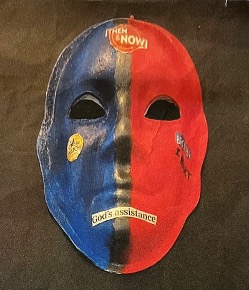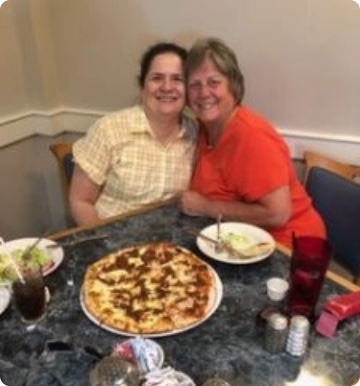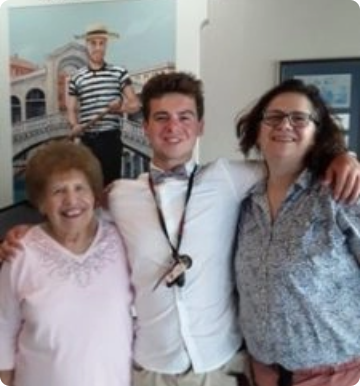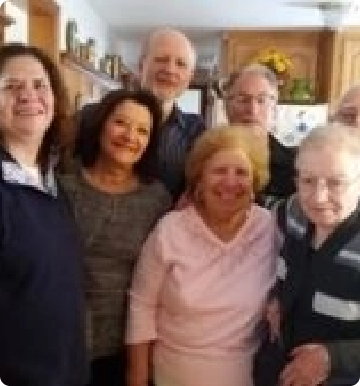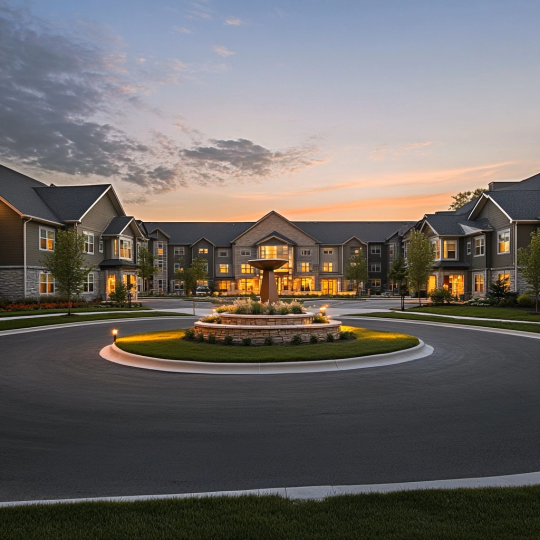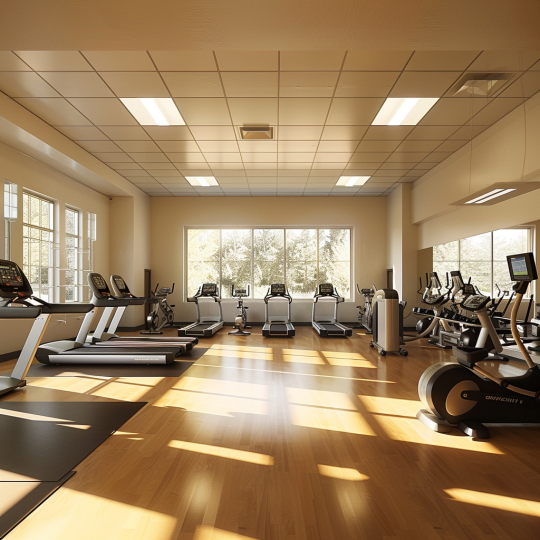Government & Legal Support: Traumatic Brain Injury Survivors
Government & Legal Support: Traumatic Brain Injury Survivors
Key Takeaways
- Federal and state programs exist to help TBI survivors access disability benefits, VA services, SSI/SSDI, and rehabilitation.
- Filing a successful compensation claim involves gathering medical evidence, choosing the right attorney, and understanding timelines.
- Veterans can maximize VA benefits by meeting eligibility criteria and submitting thorough claims.
- SSI and SSDI applications require detailed medical documentation and may involve appeals if initially denied.
- State-funded rehab and nonprofit grants can fill gaps in care; legal advocacy strengthens your claim and protects your rights.
- Financial planning, vocational rehab, and fundraising strategies help long-term stability after TBI.
Traumatic brain injury (TBI) can dramatically alter daily life, creating physical, cognitive, and emotional challenges that require significant support. Government and legal resources play a crucial role in recovery and financial stability for TBI survivors. From accessing disability benefits and compensation to specialized rehabilitation programs, Government and Legal Support for Traumatic Brain Injury Survivors exists to help navigate these complex systems during a vulnerable time.
Understanding TBI Disability Benefits Guide
Living with a traumatic brain injury (TBI) can dramatically alter your daily life, affecting everything from your ability to work to your capacity for handling routine tasks. Navigating the complex web of available support can feel overwhelming, but government and legal resources exist specifically to help survivors regain stability.
"After my accident, I felt completely lost in paperwork and medical bills," shares Michael, a TBI survivor from Oregon. "Learning about disability benefits was the turning point in my recovery journey."
Types of Disability Benefits Available After a Brain Injury
When it comes to disability benefits, TBI survivors have several options depending on their specific circumstances.
Federal programs provide the backbone of disability support:
- Social Security Disability Insurance (SSDI): For those with work history who have paid into the Social Security system
- Supplemental Security Income (SSI): Need-based assistance for those with limited income and resources
- Veterans Affairs (VA) benefits: Specialized support for service members whose TBI occurred during military service
State-level benefits vary significantly but often include:
- Workers' compensation: For injuries occurring on the job
- State disability insurance: Short-term benefits in states like California, New York, and Rhode Island
- Medicaid waiver programs: Specialized services for brain injury rehabilitation
"Federal benefits form the foundation of most TBI support systems, but don't overlook state programs that can fill critical gaps," advises Dr. Samantha Lewis, neurologist and TBI rehabilitation specialist.
Eligibility Criteria for TBI Disability Benefits
According to the Social Security Administration's Blue Book (Section 11.15), TBI disability claims must demonstrate:
- Significant physical or cognitive limitations persisting despite treatment
- Medical evidence including brain imaging and neuropsychological testing
- Substantial impairment in at least two areas of functioning (memory, concentration, social interaction, etc.)
The severity threshold typically requires:
- Documentation of initial Glasgow Coma Scale scores
- Evidence of post-traumatic amnesia duration
- Continued symptoms despite at least three months of treatment
"Many initial applications are rejected due to insufficient medical documentation," notes disability attorney Jennifer Barnes. "Be thorough in gathering evidence that demonstrates functional limitations."
Steps to Apply for Disability Benefits
The application process requires careful preparation:
-
Gather comprehensive medical records
- Neuroimaging (CT scans, MRIs)
- Neuropsychological evaluations
- Treatment history and ongoing therapy documentation
- Statements from treating physicians
-
Complete required forms
- For SSI/SSDI: Application and Adult Disability Report
- For VA benefits: VA Form 21-526EZ
- For state programs: Program-specific intake forms
-
Submit your application
- Online (recommended for tracking purposes)
- By phone
- In person at local offices
-
Prepare for the evaluation process
- Medical examinations by program-designated doctors
- Functional capacity assessments
- Interviews to determine severity of limitations
Common Challenges and How to Overcome Them
Many TBI survivors face obstacles in the benefits process:
Initial denials: Approximately 70% of first-time disability applications are denied. Don't give up—appeal the decision through:
- Request for reconsideration
- Administrative law judge hearing
- Appeals Council review
- Federal court review
Incomplete documentation: Work with a benefit specialist or attorney to identify gaps in your medical evidence.
Proving "invisible" symptoms: Cognitive issues, emotional regulation problems, and fatigue can be difficult to document. Neuropsychological testing is crucial for establishing these limitations.
"Documentation is everything," emphasizes Robert Chen, a disability benefits specialist. "The National Institute of Neurological Disorders and Stroke recommends maintaining detailed records of all symptoms and how they affect daily functioning."
How to File a Compensation Claim for Brain Injury
Beyond disability benefits, many TBI survivors may be entitled to compensation through legal channels, especially if their injury resulted from someone else's negligence.
Gathering Evidence for Your Brain Injury Claim
Building a strong compensation claim starts with comprehensive evidence:
Medical documentation:
- Emergency room and hospital records
- Diagnostic imaging results
- Neurologist and neurosurgeon reports
- Rehabilitation therapy assessments
- Mental health evaluations
- Medication records
Accident documentation:
- Police reports
- Photographs of the accident scene
- Vehicle damage reports (for auto accidents)
- Workplace incident reports
- Surveillance footage, if available
Witness statements:
- First-hand accounts from those who witnessed the accident
- Statements from family members about changes in behavior and abilities
- Expert testimony from medical professionals
Financial impact evidence:
- Medical bills and projected future costs
- Lost wage documentation
- Property damage estimates
"The strength of your claim depends largely on the quality and completeness of your evidence," says personal injury attorney Marcus Wilson. "Start gathering documentation immediately after the injury occurs."
Working with an Attorney: Finding the Right Legal Help
Selecting the right attorney can significantly impact your compensation outcome:
Questions to ask potential attorneys:
- What percentage of your practice focuses specifically on brain injury cases?
- How many TBI cases have you handled, and what were the outcomes?
- What is your approach to valuing brain injury claims?
- Will you personally handle my case, or will it be passed to associates?
- How do you communicate with clients throughout the process?
Understanding fee structures:
- Contingency fees (typically 25-40% of the settlement, paid only if you win)
- Hourly rates (less common in personal injury cases)
- Case expense responsibility
- Consultation fees (many offer free initial consultations)
"Look for an attorney who not only understands the legal aspects of TBI cases but also demonstrates knowledge about the medical complexities," recommends the Brain Injury Association of America. Their advocacy resources can help connect survivors with specialized legal representation.
Timeline for Brain Injury Compensation Claims
Understanding the typical timeline helps set realistic expectations:
Statute of limitations:
- Personal injury claims: Generally 1-3 years depending on state
- Medical malpractice: Often shorter, sometimes just 1 year
- Claims against government entities: May be as short as 60-180 days
Pre-litigation phase (3-6 months):
- Investigation and evidence gathering
- Medical treatment and documentation
- Initial demand package to insurance company
Negotiation phase (2-6 months):
- Review of settlement offers
- Counter-offers and continued negotiation
- Possible mediation
Litigation phase (if necessary, 1-2+ years):
- Filing formal lawsuit
- Discovery process (depositions, document requests)
- Expert witness preparation
- Trial preparation and trial
"Brain injury cases often take longer than other personal injury claims because we need to establish the full extent of long-term cognitive and behavioral impacts," explains attorney Sandra Martinez.
Settlements vs. Trials: What to Expect
Weighing the options between settlement and trial is a critical decision:
Settlement advantages:
- Faster resolution (typically months versus years)
- Guaranteed compensation
- Lower legal costs
- Privacy and reduced stress
Trial advantages:
- Potentially higher compensation
- Public accountability for the responsible party
- Opportunity to set legal precedent
According to national data, brain injury settlements and verdicts vary widely:
- Mild TBI cases: $20,000 to $150,000
- Moderate TBI cases: $150,000 to $750,000
- Severe TBI cases: $750,000 to multiple millions
"The decision between settlement and trial should consider not just potential compensation but also the emotional toll of a lengthy legal process," advises neuropsychologist Dr. James Peterson. "For many survivors, the certainty of a fair settlement outweighs the potential for a larger but uncertain trial verdict."
VA Benefits for Traumatic Brain Injury Survivors
Veterans face unique challenges after sustaining a TBI during service, but the VA offers specialized programs designed to address their specific needs.
Overview of VA TBI Benefits Programs
The U.S. Department of Veterans Affairs provides comprehensive support programs:
Disability compensation:
- Monthly tax-free payments based on disability rating percentage
- Ratings from 0% to 100% in 10% increments
- Special Monthly Compensation for severe cases requiring aid and attendance
Healthcare services:
- Specialized TBI treatment centers
- Polytrauma System of Care for complex injuries
- Neurological examinations and ongoing treatment
- Mental health services for common TBI co-conditions like PTSD
Vocational rehabilitation and employment (VR&E):
- Career counseling and job training
- Education benefits
- Workplace accommodations
- Self-employment support
Caregiver support:
- Program of Comprehensive Assistance for Family Caregivers
- Monthly stipends for primary caregivers
- Respite care services
- Healthcare coverage for qualifying caregivers
"The VA's TBI programs have evolved significantly in recent years, particularly after recognizing the prevalence of blast-related TBIs from Iraq and Afghanistan," notes Veterans Service Officer Michael Rodriguez.
Eligibility Requirements for Veterans with TBI
To qualify for VA TBI benefits, veterans must meet specific criteria:
Service connection requirements:
- TBI must have occurred during active military service
- Evidence linking current condition to service incident
- Documentation of the event causing the injury
Discharge status considerations:
- Honorable discharge typically required
- Other-than-honorable discharges may qualify with review
- Dishonorable discharges generally disqualify veterans from benefits
Medical evidence needs:
- Diagnostic imaging showing brain injury
- Neuropsychological testing results
- Medical nexus letters connecting current symptoms to service
- VA Compensation & Pension (C&P) examination findings
"The medical nexus letter is often the most critical piece of evidence," explains VA-accredited attorney Thomas Williams. "It should clearly explain how your current symptoms relate to the in-service event."
How to File a VA Claim for TBI Benefits
The VA claims process follows specific steps:
-
Prepare your claim package:
- VA Form 21-526EZ (Application for Disability Compensation)
- Service treatment records
- Private medical records
- Statements from fellow service members or witnesses
- Personal statement describing the incident and symptoms
-
Choose your filing method:
- Online through VA.gov or eBenefits portal (recommended for tracking)
- By mail to your regional VA office
- In person at a VA regional office
- With assistance from a Veterans Service Organization (VSO)
-
Undergo VA examinations:
- Compensation & Pension (C&P) exam
- Neurological assessment
- Cognitive function testing
- Assessment of physical limitations
-
Respond to VA requests:
- Provide any additional requested information promptly
- Attend all scheduled examinations
- Submit supplemental evidence as needed
"Working with a VSO representative can significantly improve your chances of success," advises former VA claims processor Janet Miller. "They understand the system and can help you avoid common pitfalls."
Maximizing VA Benefits: Tips for Veterans
Strategic approaches can help veterans receive appropriate compensation:
Addressing secondary conditions:
- File for conditions resulting from your TBI (headaches, seizures, depression)
- Each secondary condition can increase your overall rating
- Provide medical evidence linking these conditions to your primary TBI
Pursuing increased ratings:
- Request reevaluation if symptoms worsen
- Document changes in cognitive function, physical abilities, and independence
- Update medical evidence regularly
Using specialized resources:
- VA's TBI screening program
- Polytrauma/TBI System of Care
- VA Caregiver Support Program
- Adaptive housing and vehicle grants for severe cases
"Veterans should understand that TBI symptoms can evolve over time," emphasizes Dr. Robert Jackson, VA neurologist. "Regular reevaluations ensure your benefits reflect your current condition."
SSI and SSDI Eligibility After TBI
Social Security programs provide vital financial support for many TBI survivors, but understanding the differences between programs is essential.
Differences Between SSI and SSDI for TBI Survivors
While both programs support people with disabilities, they have important distinctions:
Social Security Disability Insurance (SSDI):
- Based on work history and Social Security contributions
- Requires sufficient "work credits" earned through employment
- Benefit amount determined by lifetime earnings
- Medicare eligibility after 24 months of benefits
- No income or resource limits
- Five-month waiting period after disability onset
Supplemental Security Income (SSI):
- Need-based program for those with limited income and resources
- No work history requirement
- Fixed maximum benefit amount ($914/month for individuals in 2023)
- Immediate Medicaid eligibility in most states
- Strict income and resource limits ($2,000 for individuals, $3,000 for couples)
- No waiting period
"Many TBI survivors don't realize they might qualify for both programs," explains Social Security advocate Lisa Chen. "If your SSDI benefit is low, you might receive additional SSI payments to reach the minimum threshold."
Medical Documentation Requirements
According to the Social Security Administration's Blue Book (Section 11.15), TBI claims require specific documentation:
Essential medical evidence:
- Brain imaging (CT scans, MRIs) showing structural damage
- Neuropsychological evaluations documenting cognitive deficits
- Treatment records showing at least 3 months of persistent symptoms
- Function reports from treating physicians
- Evidence of limitations in at least two functional areas
Key assessment measures:
- Glasgow Coma Scale scores from initial injury
- Post-traumatic amnesia duration
- Standardized cognitive testing results
- Activities of Daily Living (ADL) assessments
- Mental status examinations
"The National Institute of Neurological Disorders and Stroke emphasizes the importance of comprehensive documentation that shows both the physical brain injury and its functional impacts," notes disability advocate Maria Johnson.
Application Process for SSI/SSDI
The application process involves several steps:
-
Initial application submission:
- Online application (recommended for SSDI)
- Phone appointment (1-800-772-1213)
- In-person at local Social Security office (often required for SSI)
-
Complete supporting forms:
- Adult Disability Report (Form SSA-3368)
- Function Report (Form SSA-3373)
- Work History Report (Form SSA-3369)
- Authorization to Disclose Information (Form SSA-827)
-
Attend consultative examinations:
- SSA may request additional medical examinations
- These are conducted by SSA-contracted physicians
- Failure to attend can result in denial
-
Respond to information requests:
- SSA often requests clarification or additional documentation
- Prompt responses prevent processing delays
- Keep copies of everything submitted
"During your Social Security interview, focus on your worst days, not your best," advises former SSA examiner Robert Phillips. "Many applicants minimize their limitations, which can lead to benefit denials."
Appeal Options if Your SSI/SSDI Claim Is Denied
Most initial claims are denied, making the appeals process crucial:
Reconsideration (60 days to file):
- Complete form requesting review
- Submit new medical evidence if available
- Different examiner reviews entire file
- Approximately 15% approval rate
Administrative Law Judge (ALJ) Hearing (60 days to file):
- In-person or video hearing with a judge
- Opportunity to testify about limitations
- Medical and vocational experts may participate
- Approximately 50% approval rate
Appeals Council Review (60 days to file):
- Reviews ALJ decision for legal errors
- Rarely overturns denials without clear mistakes
- Can remand case back to ALJ for new hearing
Federal Court Review (60 days to file):
- Formal lawsuit in federal district court
- Requires attorney representation
- Reviews legal aspects, not medical facts
- Can take 1-2 years for resolution
"Attorney representation at the hearing level significantly increases approval rates," states disability attorney Jonathan Becker. "Judges respond to organized presentations that clearly connect medical evidence to SSA's disability criteria."
State-Funded Rehabilitation Programs for TBI
Beyond federal support, state programs offer specialized rehabilitation services that can be essential to recovery.
Types of State Programs and Services
The Administration for Community Living's Traumatic Brain Injury State Partnership Program helps fund various services:
Inpatient rehabilitation:
- Acute rehabilitation hospitals
- Subacute rehabilitation facilities
- Specialized TBI treatment centers
Outpatient services:
- Physical, occupational, and speech therapy
- Cognitive rehabilitation
- Psychological counseling
- Group therapy programs
Home and community-based services:
- Home health aides and personal care assistants
- Independent living skills training
- Environmental modifications
- Assistive technology assessment and training
Specialized programs:
- Day treatment programs
- Community re-entry services
- Vocational rehabilitation
- Residential programs for severe cases
"State programs often provide the longer-term support that federal programs don't cover," explains TBI case manager Sophia Williams. "They're designed to bridge gaps in the continuum of care."
How to Find and Apply to State-Funded TBI Programs
Accessing state programs requires navigating specific channels:
Primary contact points:
- State
Conclusion
Government and legal support systems provide essential resources for traumatic brain injury survivors navigating the complex journey of recovery. From disability benefits and VA claims to SSI/SSDI programs, rehabilitation services, legal advocacy, and financial assistance, these supports create a foundation for stability after injury. By understanding and accessing these resources, TBI survivors and their families can focus on what matters most—recovery and rebuilding. Download our free TBI benefits checklist, schedule a consultation with an advocate, or join our support network today to take the next step toward securing the support you deserve.



